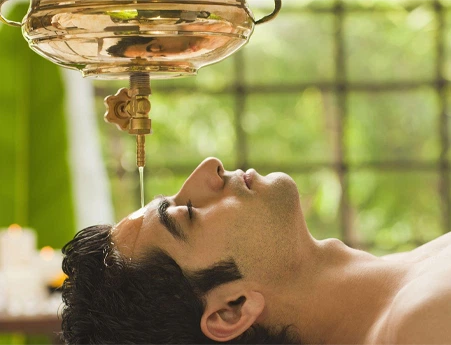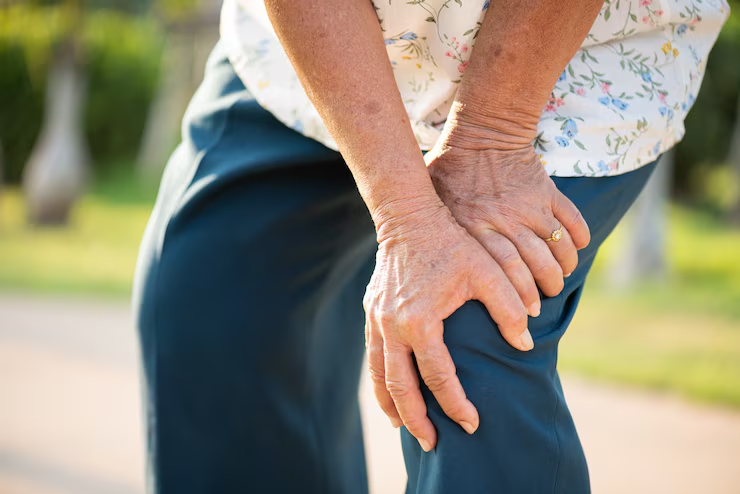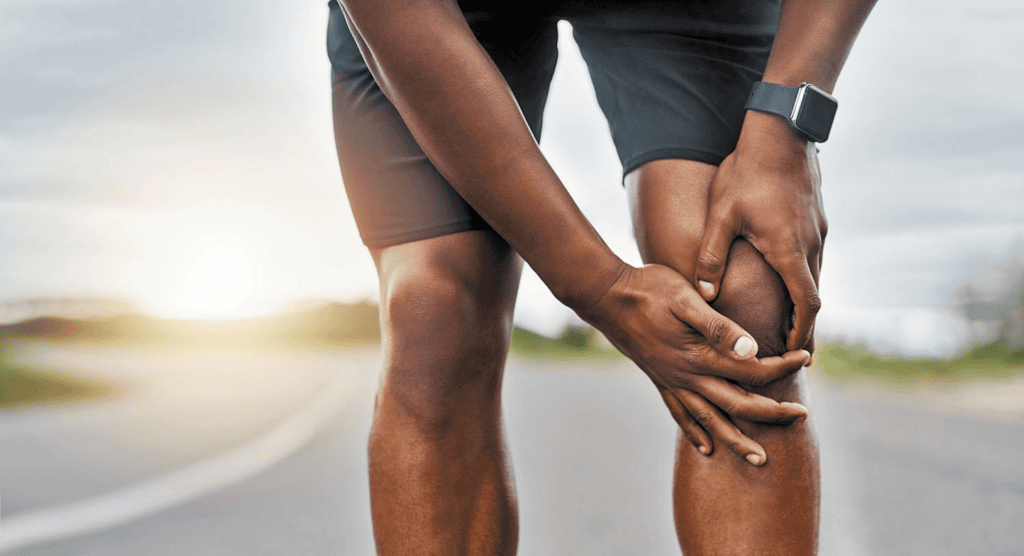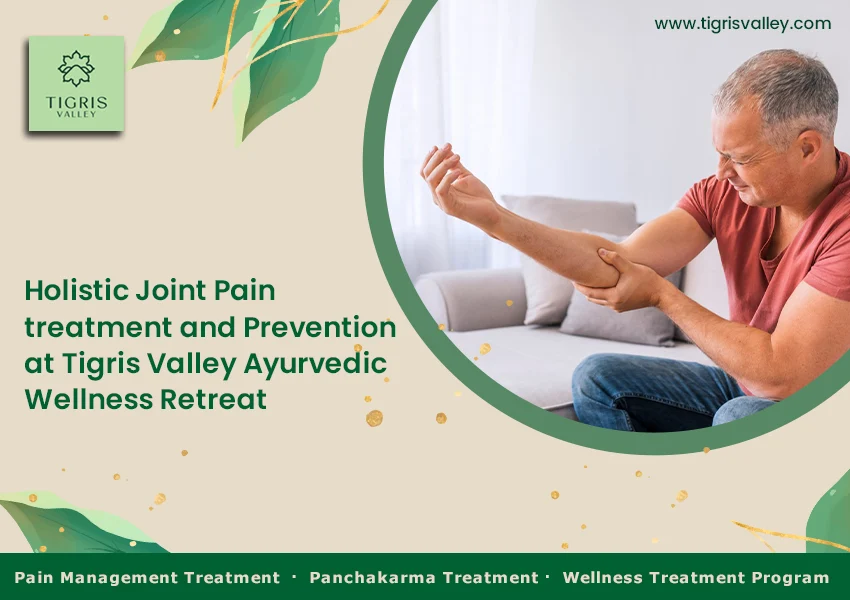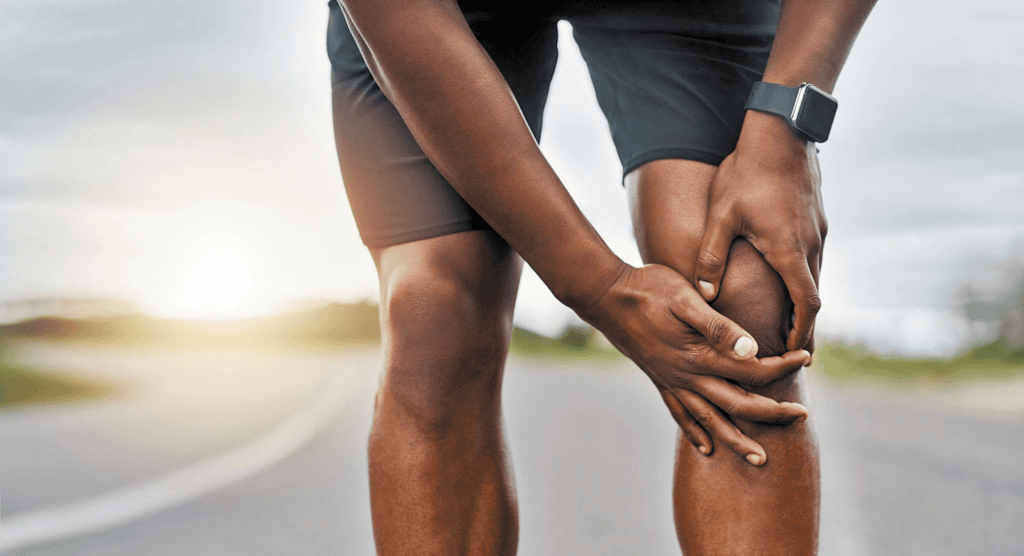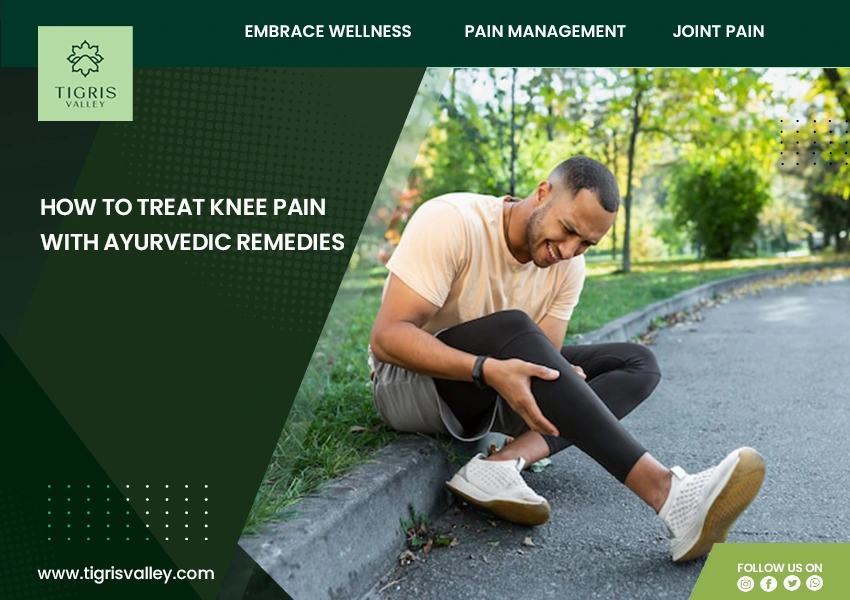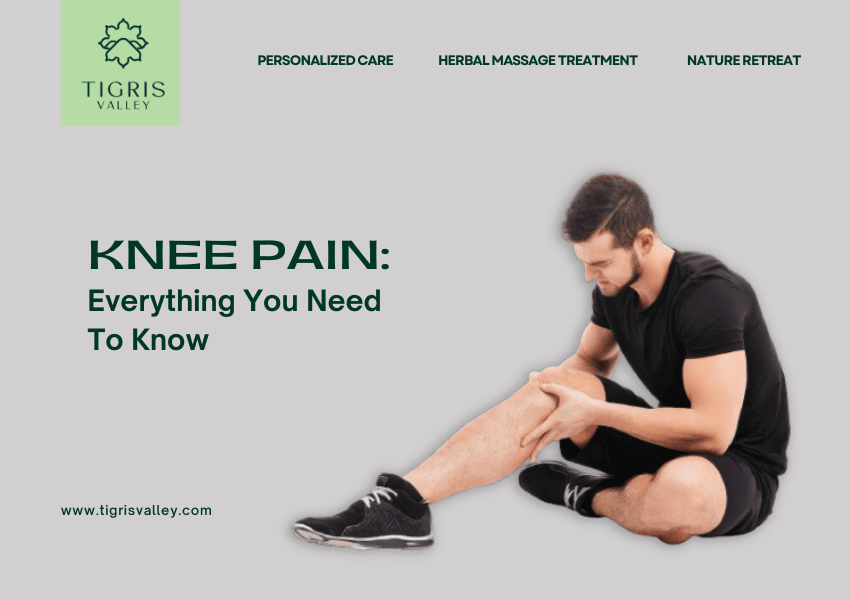Revitalize Your Health Through The Best Ayurvedic Wellness Treatments in Kerala At Tigris Valley Wellness Retreat
Have you ever dreamed of a healing experience that rejuvenates your body, mind, and soul? Look no further than Kerala, India’s green paradise and the birthplace of Ayurveda. This traditional holistic healing system has been practised for thousands of years, offering a natural approach to wellness and now day by day it’s gaining global attention. Ayurvedic treatments aim to promote wellness, prevent illness, and restore harmony to health and wellness.
Tigris Valley, a premium wellness hospital provides the best ayurvedic treatments in Kerala, India focusing on restoring balance within the body, mind, and spirit by utilizing nature’s therapeutic benefits through traditional methods. Our expert ayurvedic doctors and practitioners create personalized treatment plans that deliver your unique needs, whether you’re seeking relief from chronic health conditions, stress reduction, or a complete full body detox. From rejuvenating herbal treatments to healing therapies and meditation, Our Ayurvedic treatments offer a retreat for those looking to enhance their wellness.

What Are The Specialized Treatments Tigris Valley Offers for Body Rejuvenation?
Tigris Valley Wellness Retreat offers a wide range of specialized Ayurvedic treatments developed to promote holistic healing and overall wellness. Each treatment is customized to individual needs, considering individual dosha types and particular health issues. Here’s a detailed overview of some of the Ayurvedic treatments you might find:
Panchakarma Treatment
Panchakarma Treatment is an intense full-body detoxification and rejuvenation process containing five therapeutic actions. It aims to cleanse the body of accumulated toxins, restoring balance and body strength. Tigris Valley Wellness Retreat provides the best panchakarma treatment in Kerala which includes Vamana (therapeutic vomiting), Virechana (purgation), and Basti (medicated enemas). Each component is carefully selected based on individual health needs. All procedures are customized to the patient’s specific health condition ensuring the best effective results.
Before beginning the panchakarma ayurvedic treatment, a thorough assessment is conducted to understand the patient’s body type, health history, and specific concerns. This personalized evaluation guides the selection of treatments. The team of experienced practitioners guides clients throughout the detox therapy process, providing support as needed. Tigris Valley’s Panchakarma treatment is a balanced approach to wellness that offers a transformative journey toward better health. Through personalized care, clients can achieve balance, rejuvenation, and overall well-being.
Shirodhara Treatments

Shirodhara is a well-known Ayurvedic treatment that involves the gentle, continuous pouring of warm, medicated oil over the forehead, specifically targeting the third eye area. This deeply relaxing treatment begins with a detailed evaluation where practitioners assess the person’s health history and dosha imbalances to prepare a customized combination of herbal oils. During the Shirodhara treatment, clients lie comfortably as the oil flows in a steady stream for 30 to 60 minutes, promoting a meditative experience that calms the mind and stabilizes the people.
Shirodhara is an effective Ayurvedic treatment that is used for several purposes making them flexible, primarily they promote deep relaxation and relieve stress, helping to reduce anxiety levels. Many people find that Shirodhara treatment enhances mental clarity and focus, making it easier to concentrate. Additionally, this treatment is effective in reducing sleep disorders, including insomnia, thereby improving overall sleep quality. It can also provide relief from tension headaches and migraines, calming the nervous system and promoting emotional balance. Furthermore, Shirodhara nourishes the scalp, potentially improving hair health. After treatment, clients are encouraged to relax and maintain a calm environment to integrate the healing benefits of Shirodhara. It will promote physical and mental well-being, providing relief and rejuvenation.
Stress Management Treatments
Stress is a physical and emotional response to challenging or demanding situations. It can arise from various factors, such as work pressures, personal challenges, or environmental changes.
Managing stress is essential for maintaining overall health and wellness. Tigris Valley offers a specialized anxiety & stress treatment designed to address the physical, mental, and emotional aspects of stress. Abhyanga is a full-body oil massage using warm, herbal oils customized to your dosha promoting deep relaxation and tension relief. Shirodhara treatment where warm medicated oil is poured over the forehead to calm the nervous system and enhance mental clarity. Complementing these treatments are guided yoga and pranayama sessions, along with meditation practices that help cultivate mindfulness and emotional resilience.
Additionally, Nasya therapy targets stress-related headaches, while Kizhi, using warm herbal pastes, relieves muscle tension. Customized detoxification therapy programs and nutritional counselling based on Ayurvedic principles further support the body during stressful times. Together, these treatments foster enhanced relaxation, improved sleep quality, and emotional balance, enabling people to face life’s challenges with increased ease and resilience. Tigris Valley provides a supportive environment for anyone seeking holistic stress relief and a renewed feeling of wellness.
Chronic Disease Management
Chronic diseases are long-lasting health conditions that require ongoing management and care. Effective disease management focuses on holistic approaches to improve quality of life and overall wellness. Our wellness hospital specializes in managing chronic diseases such as arthritis, diabetes, and psoriasis. The process begins with a detailed assessment to understand each person’s unique health profile including medical history and lifestyle factors which guide the creation of personalized treatment plans. These plans often include dietary guidance, focusing on nutrient-packed, anti-inflammatory foods, alongside herbal remedies personalized to specific health concerns. Lifestyle modifications, such as stress management techniques and physical activity recommendations play a crucial role in the management process.

Treatments like Panchakarma, Abhyanga, and yoga are also utilized to reduce symptoms and improve wellness retreats. Recognizing the connection between mind and body, emotional support through mindfulness practices and counselling is provided as needed. Ongoing monitoring and regular follow-ups ensure that treatment plans are adjusted to meet evolving health needs, empowering clients to take an active role in their health journey. By combining education with personalized care, Tigris Valley aims to enhance the quality of life for individuals with chronic diseases, helping them achieve balance and vitality in every aspect of their lives.
Post-Surgical Care Treatment:
Post-surgical care is essential for facilitating recovery and promoting overall healing after surgery. It focuses on addressing physical, emotional, and nutritional needs to ensure a smooth and effective healing process. At Tigris Valley, we provide the best post-surgical treatment in Kerala focusing on faster recovery, wound healing, and pain management. Each recovery plan begins with a personalized assessment that considers the individual’s surgical procedure, medical history, and specific needs.
Our post-surgical care such as gentle massages and herbal treatments relieves pain and reduces inflammation, promoting comfort during recovery. Nutritional guidance is provided, focusing on a balanced diet rich in nutrients to support healing and strengthen the immune system. Gentle exercises and yoga practices are customized to improve mobility, flexibility, and strength, while mindfulness techniques and counselling address any emotional challenges that may arise. Regular follow-ups ensure that progress is monitored and care plans are adjusted as needed. Overall, Tigris Valley’s post-surgical care program empowers clients to heal effectively and regain their energy in an enriching environment.
Skin Diseases Treatment
Skin diseases contain a wide range of conditions that affect the skin caused by various factors, including infections, allergies, immune system disorders, and environmental influences. Ayurvedic skin diseases treatment at Tigris Valley target the root causes of skin diseases, focusing on full body detoxification and nourishment. Our Skin disease treatment includes herbal pastes, therapeutic baths, and dietary adjustments to restore skin health. Customized treatments aim to address specific concerns, whether it’s eczema, psoriasis, or acne.

At Tigris Valley, our approach to treating skin diseases focuses on restoring balance and harmony within the body. We recognize that skin conditions such as eczema, psoriasis, alopecia, or leucoderma frequently arise from hidden imbalances. So our treatments aim to address these root causes rather than just the symptoms. The process begins with a detailed assessment conducted by our experienced Ayurvedic practitioners who evaluate the individual’s medical history, lifestyle, dietary habits, and specific skin concerns. This personalized approach allows us to create a customized treatment plan that considers each client’s unique body constitution (dosha).
The herbal remedies are known for their anti-inflammatory and healing properties including neem, turmeric, aloe vera, and sandalwood, which can be used both internally and topically. Detoxification plays a key role in our treatment, often utilizing Panchakarma to cleanse the body of toxins that contribute to skin issues, thereby enhancing overall health. Clients receive customized skincare treatment featuring specific herbal applications and oils designed to nourish the skin and reduce dryness, redness, and irritation.
In addition, nutritional counselling helps clients adopt a balanced diet that supports skin health, focusing on anti-inflammatory foods and hydration while avoiding common allergens. Lifestyle modifications including stress management techniques and regular exercise, are also emphasized, as stress can significantly impact skin conditions.
Spinal Issues and Pain Management Treatment
Back pain and spinal issues refer to discomfort or problems affecting the back and spine, which can arise from various causes. These conditions can range from mild discomfort to severe pain and may affect daily activities. These issues can significantly impact quality of life. At Tigris Valley Wellness Hospital, we take a balanced approach to treating spinal issues and joint pain and provide comprehensive care. Our treatments are designed for persons dealing with conditions such as osteoarthritis, herniated discs, sciatica, and general joint discomfort. The pain management treatment begins with a detailed assessment by our skilled practitioners, who evaluate the patient’s medical history, lifestyle, and specific pain concerns. This personalized approach allows us to identify the root causes of pain and create customized treatment plans.
The treatment of knee joint pain in Ayurveda, includes Abhyanga, a full-body oil massage that enhances circulation and reduces muscle tension. Kati Basti, which involves the application of warm medicated oil to the lower back, helps alleviate inflammation and pain. We also utilize Kizhi, or herbal therapy, to provide targeted relief for specific joints and areas of discomfort. These remedies can be taken internally or applied topically to support healing. Recognizing the significant role of lifestyle in managing pain, we offer guidance on proper posture, ergonomic practices, and exercises designed to strengthen the muscles surrounding the spine and joints. Tigris Valley’s approach to spinal issues and joint pain is comprehensive and individualized, empowering clients to achieve lasting relief and improve their quality of life in a supportive environment.
Tigris Valley Ayurvedic Treatments offer a balanced approach to wellness, seamlessly blending traditional practices with the region’s rich natural resources. With a diverse range of therapies customized to individual needs, visitors can experience relaxation and rejuvenation. The calming environment of Kerala enhances the therapeutic benefits, making it an ideal destination for those seeking to restore balance and harmony in their lives. Whether through detoxification, rejuvenation, or stress relief, Tigris Valley embodies the essence of Ayurveda, promoting a healthier and more harmonious way of living.





